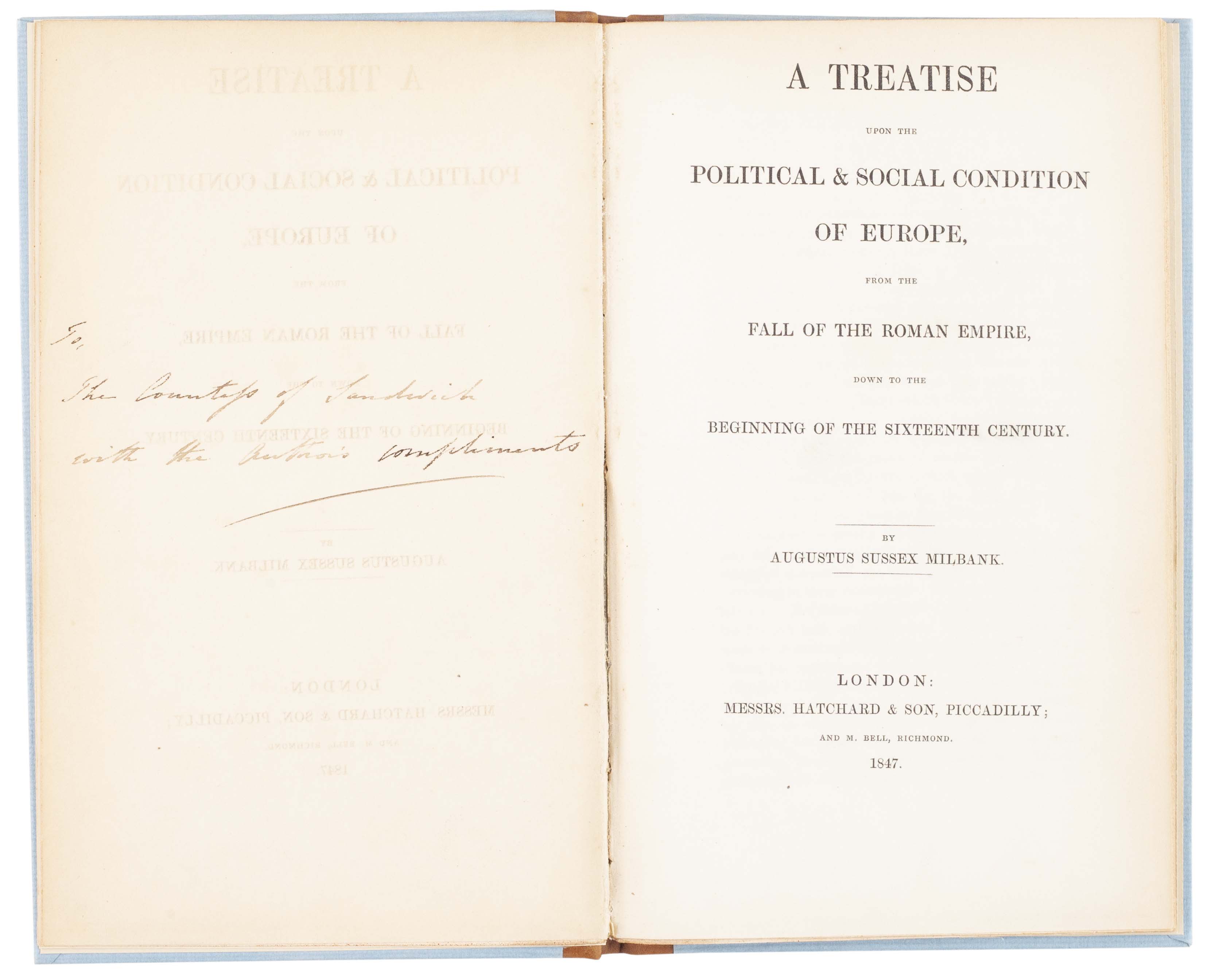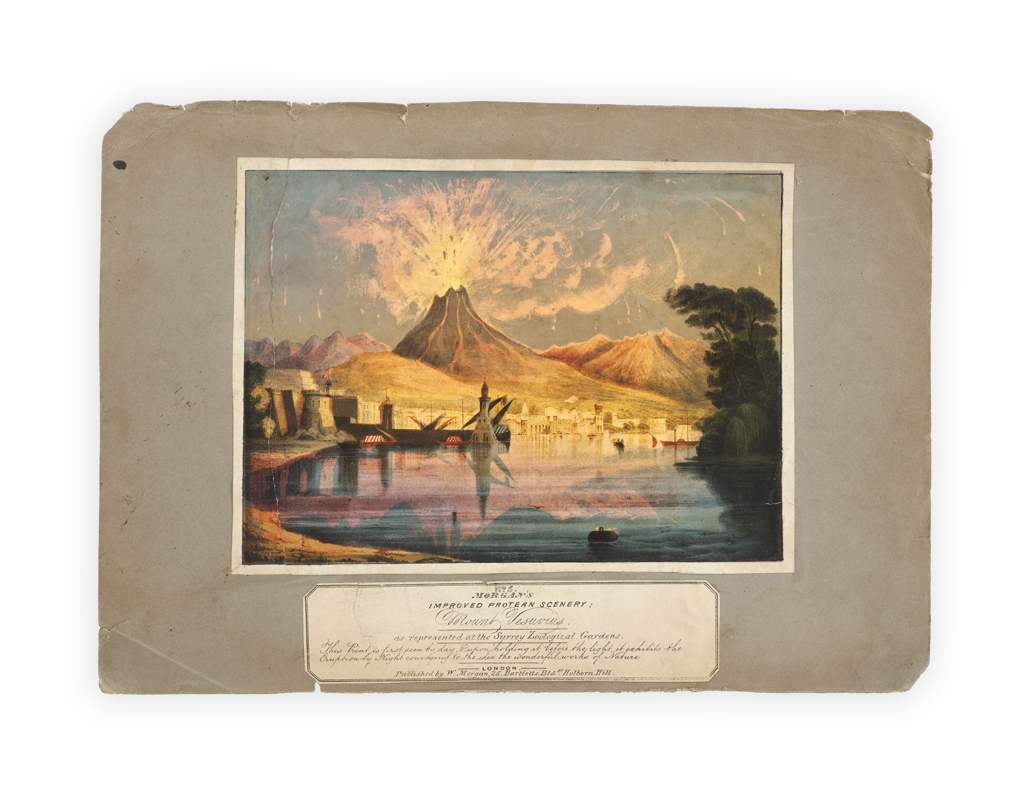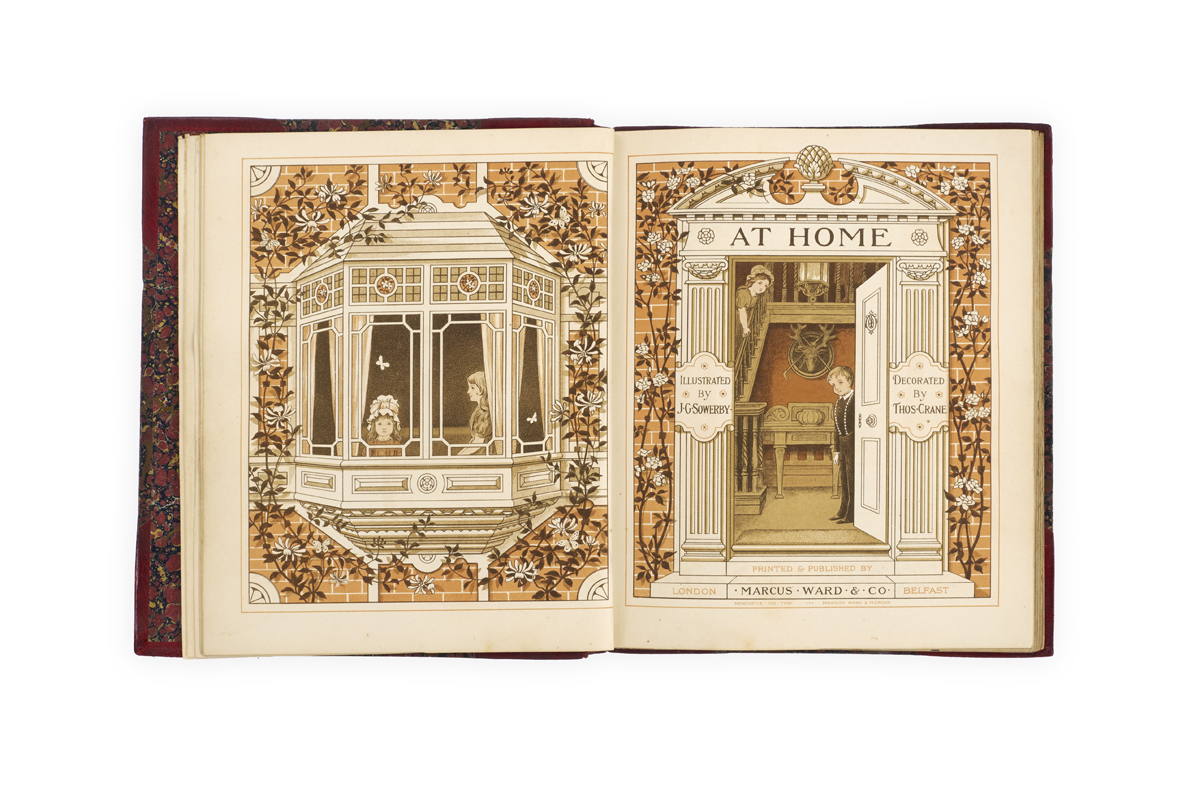
THE FALL OF ROMEPRESENTED WHILE PARIS FALLS
MILBANK, Augustus Sussex.
A Treatise upon the political & social Condition of Europe, from the Fall of the Roman Empire, down to the Beginning of the sixteenth Century.
[Richmond, M. Bell for] London, Messrs Hatchard & Son, and Richmond, M. Bell, 1847.
8vo, pp. [2 (blank)], v, [1 (blank)], 45, [1 (blank)]; a very good copy in recent calf-backed boards with blue paper sides, gilt roan lettering piece to upper board; preliminary blank inscribed ‘To, // The Countess of Sandwich // with the Author’s compliments'.

Added to your basket:
A Treatise upon the political & social Condition of Europe, from the Fall of the Roman Empire, down to the Beginning of the sixteenth Century.
First and only edition of a rare Yorkshire-printed treatise of social history by an amateur historian and educational enthusiast, inscribed by the author to the Countess of Sandwich.
The Treatise appears to be the only publication by Augustus Sussex Milbank (1827–1887), written when aged only nineteen. Tracing a moral development from the ancient world to an age of religious freedom, the text is perhaps old-fashioned and at times simplistic (it opens: ‘The Roman empire was the most extensive in the world, and from its own weight fell to pieces.’), but it offers a nonetheless informed and interesting view of medieval history.
Milbank’s preface acknowledges the limitations of his work, but notes ‘If this little treatise should prove a source of instruction and amusement to a few, I shall be satisfied; if to many I shall be more than amply repaid for my trouble; and if to none, I shall at least bear my disappointment with patience, content in having made an effort to prove myself a useful member of the British community’. The text’s small circulation may indeed have left its author disappointed, and he did not make any future literary attempts. His pedagogic zeal was not, however, abandoned, rather diverted to local activities: he established at Hawsteads a model farm, and at Barningham in 1866 built a ‘News Room’, providing a library and newspapers for the use of locals.
Shortly after the publication of the Treatise in 1847 Milbank travelled to Paris, where he likely encountered Louisa Montagu, Countess of Sandwich (1781–1862) who had been in the city since the death of her husband in 1818. Both returned to Britain during the Revolution of the following year, though not before Milbank had witnessed the flight of Louis Philippe and been awarded a ribbon for his revolutionary efforts.
Library Hub (Copac) finds only four copies in the UK (Bodleian, BL, Lambeth, and NLS), to which OCLC adds CUL only. See also Lloyd, ‘A Revolutionary – in France and on Farm’, The Northern Echo (18 July 2015).

